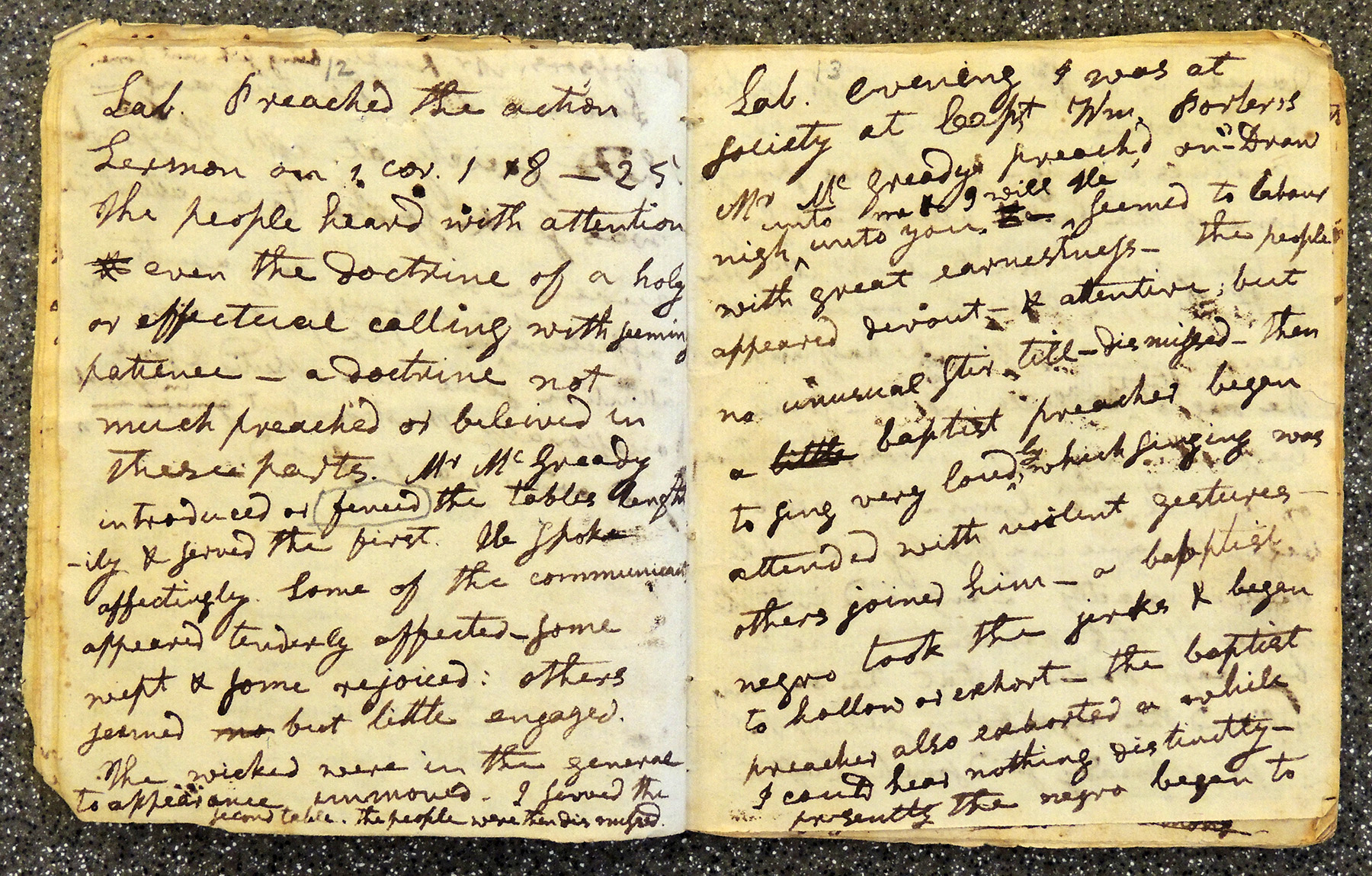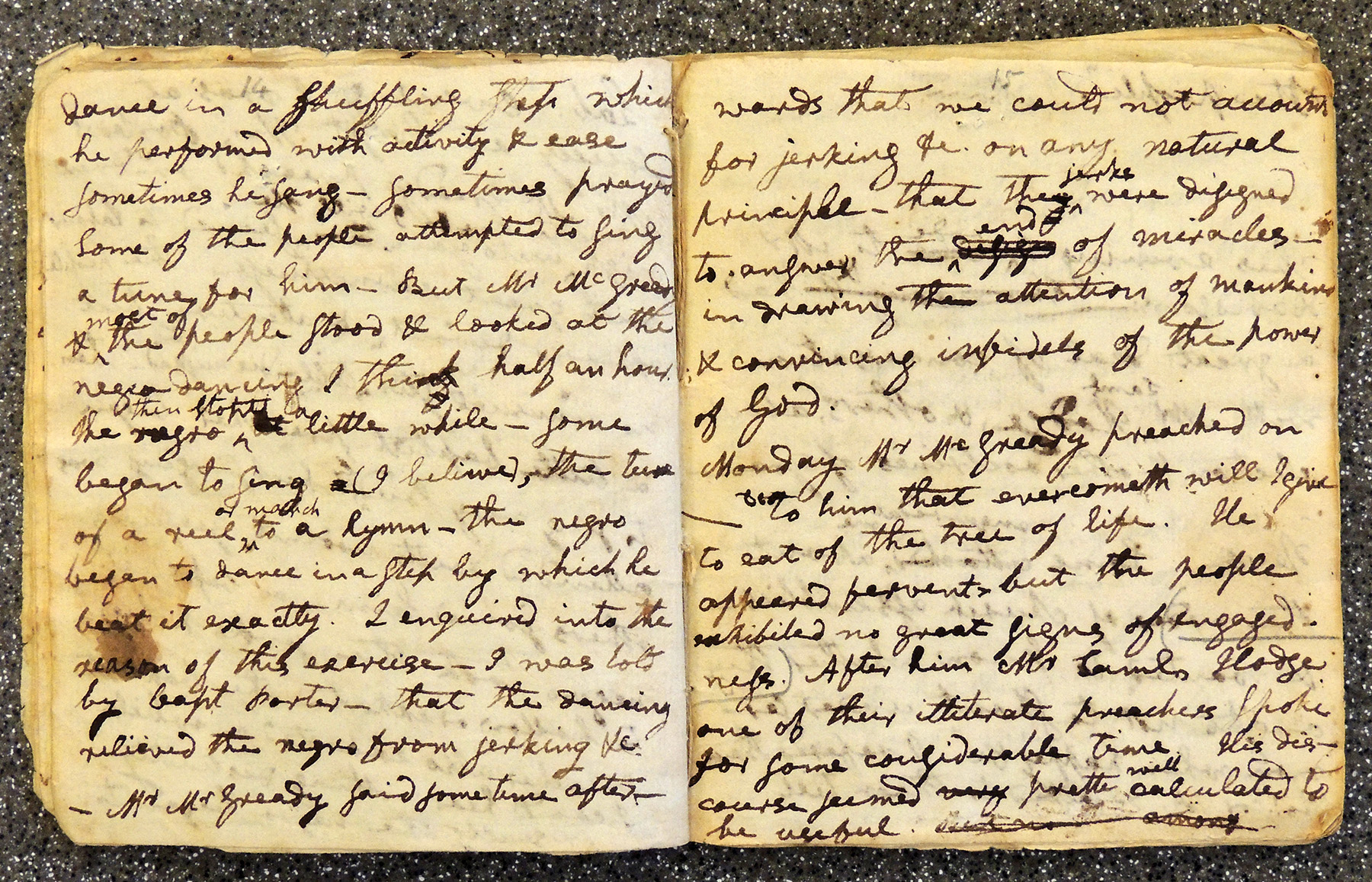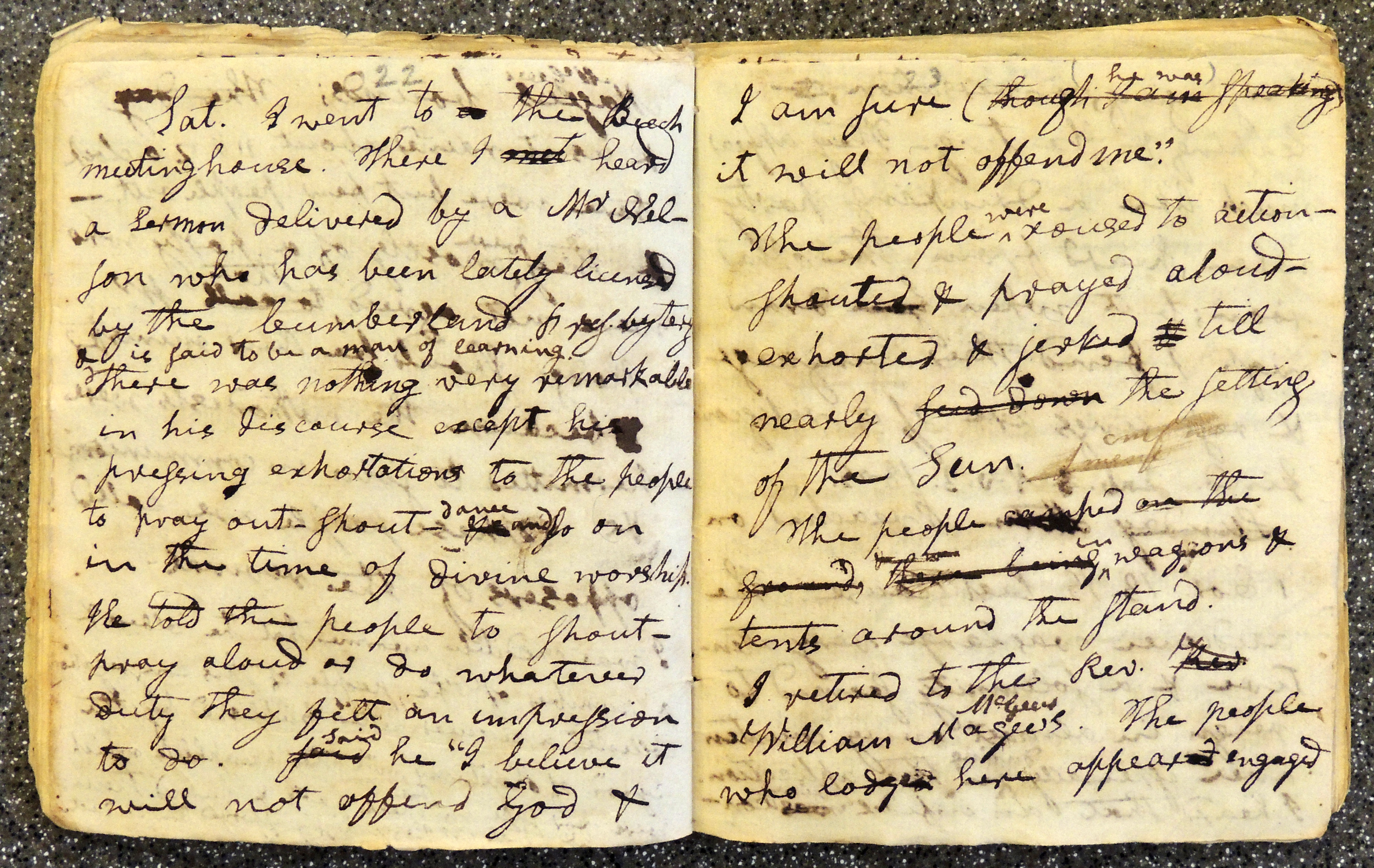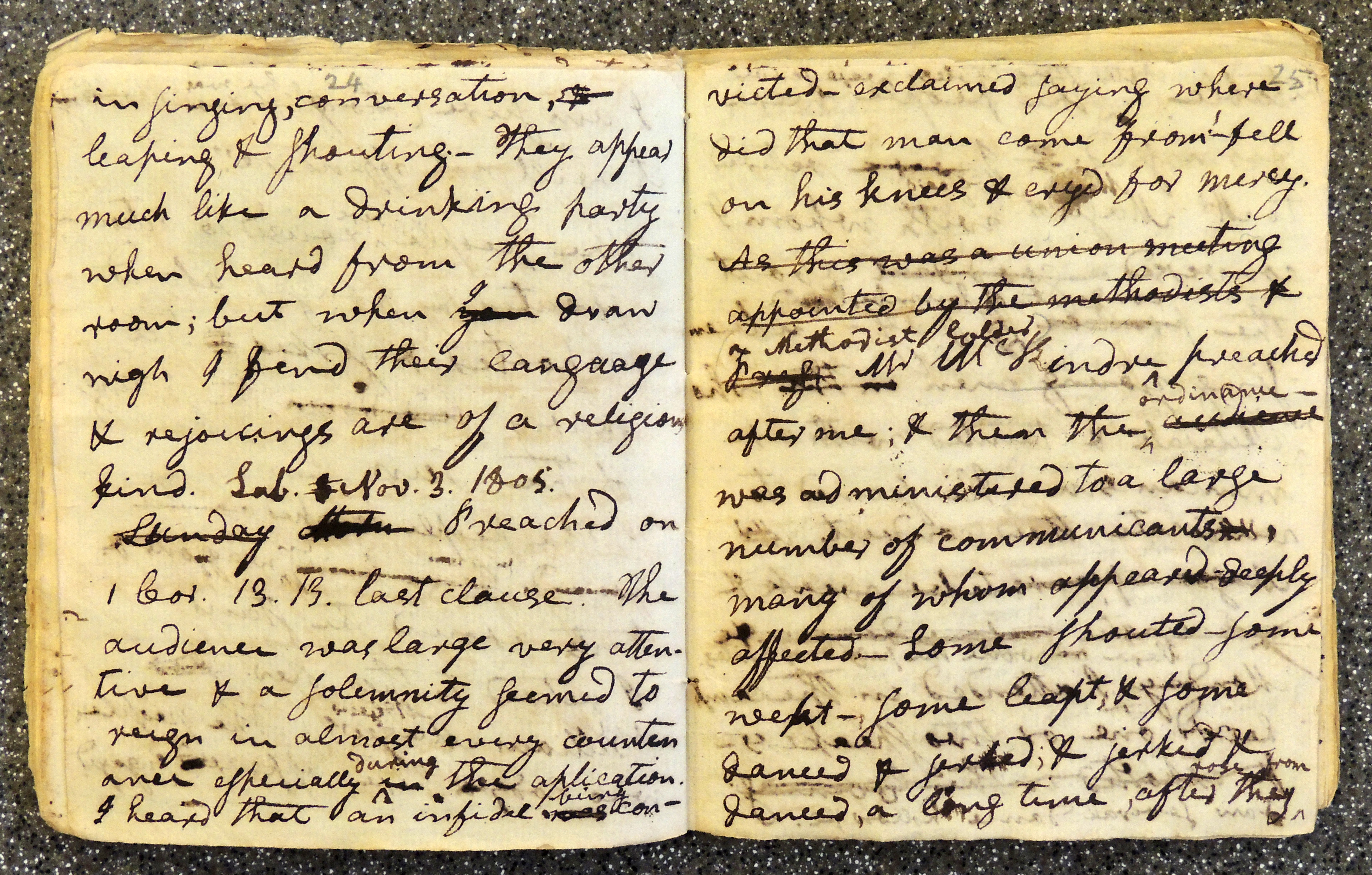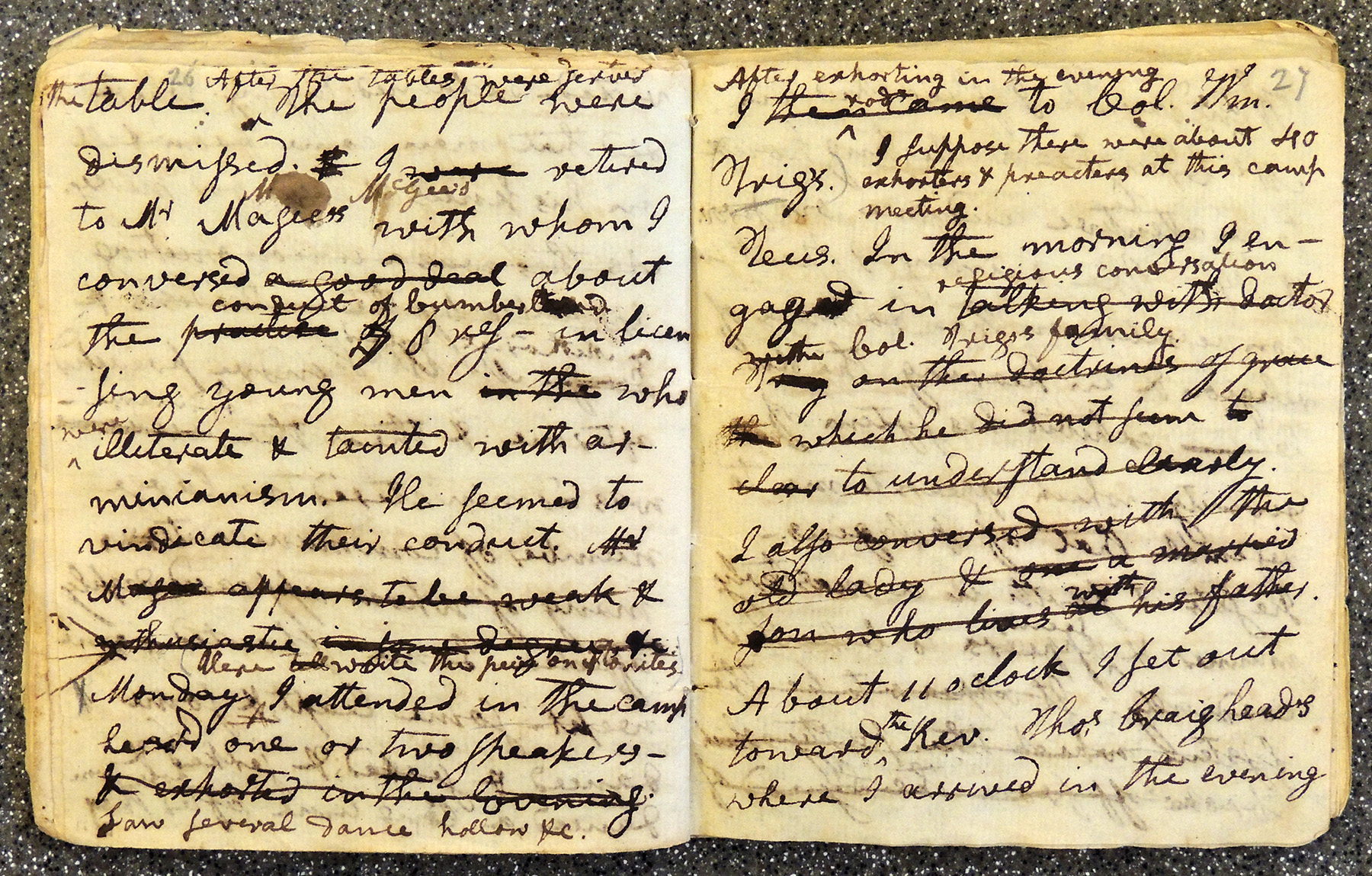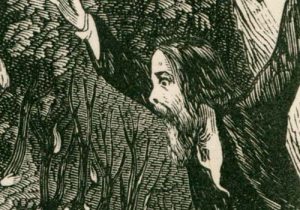During the summer and fall of 1805, members of the Kentucky Synod began receiving reports of revival errors erupting at religious gatherings in the Cumberland Presbytery in southside Kentucky and the adjacent settlements of middle Tennessee. The irregularities stemmed from the powerful preaching of a group of young ministers. None of these young firebrands had completed formal seminary training; several purportedly preached heretical theological doctrines. In October, the alarmed synod delegates dispatched minister John Lyle to assess the overheated state of religion in the Cumberland settlements. Lyle spent the next two months touring presbytery, attending sabbath, society, and sacramental meetings, and interviewing ministers and prominent laypeople. As the following brief extracts from his journal suggest, Lyle was shocked not only by the schismatic temperament of the Cumberland radicals but also by their strident advocacy of the jerks and other bodily exercises in their meetings. In the years that followed, many of the individuals Lyle encountered during his trip in 1805 played critical roles in founding the breakaway Cumberland Presbyterians and the Shaker community at South Union, Kentucky. Portions of Lyle’s journal with additional reflections were published in 1807 (click here for the full text of this document). Contextual notes appear in square brackets.
Sab. [October 27, 1805.] Preached the action sermon [at the Little Muddy Meetinghouse in what is now Butler County, Kentucky] on 1 Cor. 1:18–25. The people heard with attention even the doctrine of a holy or effectual calling with seeming patience, a doctrine not much preached or believed in these parts. Mr. McGready introduced or fenced the tables lengthily & served the first. He spoke affectingly. Some of the Communicants appeared tenderly affected. Some wept & some rejoined; others seemed but little engaged. The wicked were in the general to appearance unmoved. I served the second table. The People were then dismissed.
Sab. evening I was at Society at Capt. Wm. Porter’s. Mr. McGready preached on “Draw night unto me and I will unto you.” He seemed to labour with great earnestness. The people appeared devout and attentive; but no unusual stir till dismissed. Then a baptist preacher begun to sing loudly, which singing was attended with violent gestures. Others joined him. A baptist negro took the jerks & began to hollow or exhort. The baptist preacher also exhorted awhile. I could hear nothing distinctly. Presently the negro began to dance in a shuffling step which he performed with activity & ease. Sometimes he sang. Sometimes prayed. Some of the people attempted to sing a tune for him. But Mr. McGready & most of the people stood & looked at the negro dancing, I think half an hour. The negro then stopt a little while. Some began to sing (I believe), the tune of a reel or march to a hymn. The negro began to dance in a step by which he beat it exactly. I enquired into the reason of this exercise. I was told by Capt. Porter that the dancing relieved the negro from jerking &c. Mr. McGready said sometime afterwards that we could not account for jerking &c. on any natural principle, that the jerks were designed to answer the end of miracles, in drawing the attention of mankind & convincing infidels of the power of God….
Sat. [November 2.] I went to the Beech meeting house [in Hendersonville, Tennessee]. There I heard a sermon delivered by a Mr. Nelson who has been lately licensed by the Cumberland Presbytery & is said to be a man of learning. There was nothing very remarkable in his discourse except his pressing exhortations to the people to pray out, shout, dance and so on in the time of divine worship. He told the people to shout, pray aloud or do whatever duty they felt an impression to do. Said he, “I believe it will not offend God & I am sure (he was) it will not offend me”
The people were roused to action, shouted & prayed aloud, exhorted & jerked till nearly the setting of the sun.
The people camped in waggons & tents around the stand.
I retired to the Rev. William McGees. The people who lodge here appear engaged in singing, conversation, leaping & shouting. They appear much like a drinking party when heard from the other room; but when I draw nigh I find their language & rejoicings are of a religious kind.
Sab. November 3, 1805. Preached on 1 Cor. 13:13, last clause. The audience was large very attentive & a solemnity seemed to reign in almost every countenance especially during the application. I heard that an infidel being convicted, exclaimed saying where did that man come from, fell on his knees & cryed for mercy.
Mr. McKendre a Methodist Elder, preached after me; & then the ordinance was administered to a large number of communicants, many of whom appeared deeply affected. Some shouted. Some wept. Some leapt, & some danced & jerked; & jerked & danced, a long time; after they rose from table. After the tables were served the people were dismissed.
I retired to Mr. McGee’s with whom I conversed about the conduct of Cumberland Presbytery in licensing young men who were illiterate & tainted with Arminianism. He seemed to vindicate their conduct.
Source
John Lyle, “A Narrative of J. Lyle’s Mission in the Bounds of Cumberland Presbytery,” 12–15, 22–27, Narratio Factorum: Journals and Sermons, 1801–1808, SC 422, Kentucky Historical Society, Frankfort.
